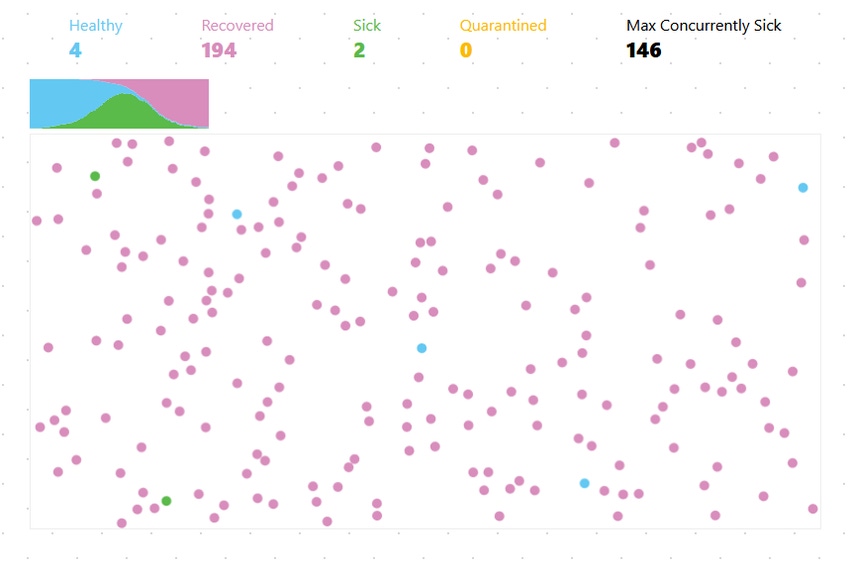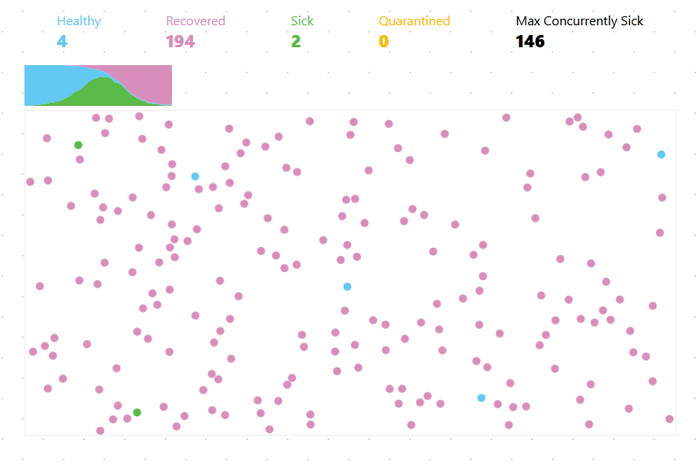This simulation shows the incredible effectiveness of low-tech measures against Covid-19
April 2, 2020

Once again highlighting the importance of masks, handwashing and testing
by Max Smolaks 2 April 2020
An engineer working for data management and analytics giant Cloudera has released the code for a Covid-19 simulation that shows just how effectively “low-tech” interventions can help curb the spread of the infection.
The online tool, available on Github, is similar to the widely cited Washington Post coronavirus simulator, but adds the ability to model the impact of wearing face masks, frequently washing your hands and carrying out medical tests – all presented visually.
It was created by Anand Patil, who has a PhD in Mathematics and Statistics from UC Santa Cruz and whose career includes three years as a biostatistician at the University of Oxford. He arrived at Cloudera in 2016 after the company bought Sense, the data science software startup he co-founded.
Have you washed your hands?

The simulation doesn’t claim to show a medically accurate representation of infection rates for Covid-19, since all the numbers for the effectiveness of interventions are based on a medical paper from 2008 that looked at known respiratory viruses. And yet, it can be used to illustrate the effectiveness of even the most basic measures in helping defeat the current pandemic.
“You can ask a certain percentage of the people in your simulation to wear masks, N95 masks, gloves or gowns, or to simply wash their hands more than 10 times per day,” states the description of the modeling tool.
“You can also
choose
to test a certain percentage of people in your simulation for
Covid-19 periodically. Anyone who tests positive will go into a
strict self-quarantine and will not infect anyone else until they
recover.”
The author
acknowledges that there is
currently no definite answer as to how infectious Covid-19 really is,
so users can try different values of R0,
or the average number of infections caused by primary infection.
About the Author(s)
You May Also Like
.jpg?width=700&auto=webp&quality=80&disable=upscale)
.jpg?width=700&auto=webp&quality=80&disable=upscale)
.jpg?width=700&auto=webp&quality=80&disable=upscale)



.jpg?width=300&auto=webp&quality=80&disable=upscale)
.jpg?width=300&auto=webp&quality=80&disable=upscale)